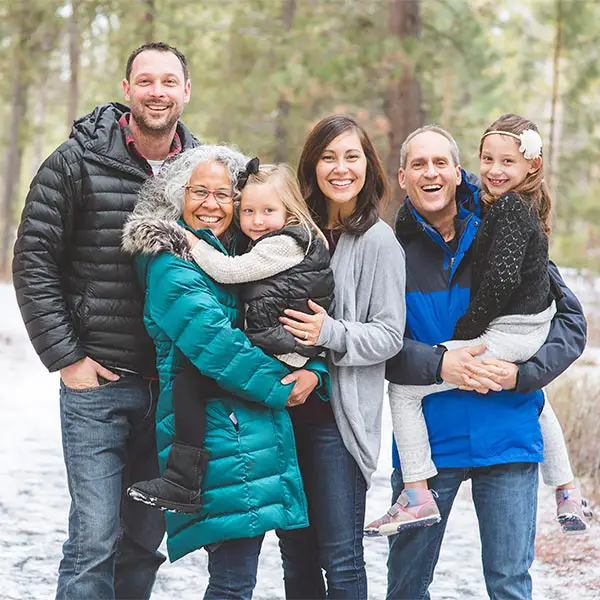
Be a Part of the Fight to End Alzheimer's
Be a Part of the Fight to End Alzheimer's
The millions of people impacted by Alzheimer's disease need your help. Your generosity can help us provide care and support to those facing challenges of Alzheimer's and advance global research. Please make a gift today.
Donate NowSpring 2019
ALZ Media Insider is an exclusive email for news media to assist with story ideas, resources, statistics and spokespersons related to the United States' 6th leading cause of death.
Headlines in this issue:
Alzheimer's and Wandering: Tips for Family Caregivers
Oletree, 66, who was diagnosed with Alzheimer's in 2016, went missing from his home for several hours before being found in a Boston pizza shop following a broad search.
It is estimated that 60 percent of those living with Alzheimer's will wander at least once during the course of the disease. To combat wandering, the Alzheimer's Association offers these tips:
- Establish a daily routine to provide structure
- Plan activities which can reduce anxiety, agitation and restlessness
- Ensure basic needs are met (using a bathroom, eating meals)
- Avoid crowded spaces that can trigger confusion
- Use devices that signal when a door or window is opened
-
Media Note: The Alzheimer's Association has additional information as well as Association experts and family caregivers who are navigating this challenging behavior.
Federal Legislation Seeks to Help Individuals with Younger-Onset Alzheimer's
While the vast majority of the 5.8 million Americans living with Alzheimer's are over age 65 — there are more than 200,000 Americans under age 65 living with younger-onset Alzheimer's.
The symptoms of younger-onset Alzheimer's mimic those associated with later-onset Alzheimer's, however, the experience itself can be very different. Many people living with younger-onset Alzheimer's are still working. Many may be at the peak of their professional careers. If the person with younger-onset is the primary breadwinner family finances can become stressed. These individuals may have more financial responsibilities including mortgages and college tuitions. Since they are younger they may not be financially prepared to retire.
To help these individuals, the Alzheimer's Association and its advocacy arm, the Alzheimer's Impact Movement (AIM), is supporting the bipartisan Younger-Onset Alzheimer's Disease Act. This legislation expands access under the Older Americans Act (OAA), to supports and services and The National Family Caregiver Support Program, for individuals under age 60 who are diagnosed with younger-onset Alzheimer's disease.
"Individuals living with younger-onset face unique challenges when it comes to family, work, and finances. The resources available under the OAA are a critically important support system for older individuals with Alzheimer's, and we must make them available to individuals with younger-onset Alzheimer's and other dementias too," said Robert Egge, Alzheimer's Association chief public policy officer and AIM executive director.
- Media Note: The Alzheimer's Association can connect you with individuals living with younger-onset Alzheimer's and policy experts to discuss the need for this important legislation.
Media Registration Open for Largest Global Gathering of Alzheimer's and Dementia Researchers — AAIC 2019
Interested writers and reporters can register for the Alzheimer's Association International Conference (AAIC) 2019, convening in Los Angeles from July 14-18.Bringing together scientists from more than 70 countries, AAIC 2019 is expected to feature roughly 3,000 scientific presentations focusing on basic science, emerging research, innovative practice techniques, clinical trials, biomarker advances, technology and late-breaking "Developing Topics."
New studies reported at AAIC 2019 will cover the spectrum of Alzheimer's and dementia research, including causes, risk factors, diagnosis, treatment, and prevention. We anticipate news regarding:
- The latest in Alzheimer's drug and non-drug (lifestyle) therapy trials at all stages of development.
- Emerging roles for imaging and fluid biomarkers in the early detection of Alzheimer's disease.
- Alzheimer's/dementia/cognitive decline risk factors and possible risk reduction strategies.
- Advances in determining the causes of Alzheimer's and other dementias, including genetics.
Detailed information about news media registration may be found on the AAIC Press page, and members of the media may request press credentials here.
To receive the embargoed news materials for AAIC 2019, even if you do not plan to attend the conference, you must register for press credentials.
Media Contact
Mike Lynch
Media phone line: 312-335-4078
Email: media@alz.org
